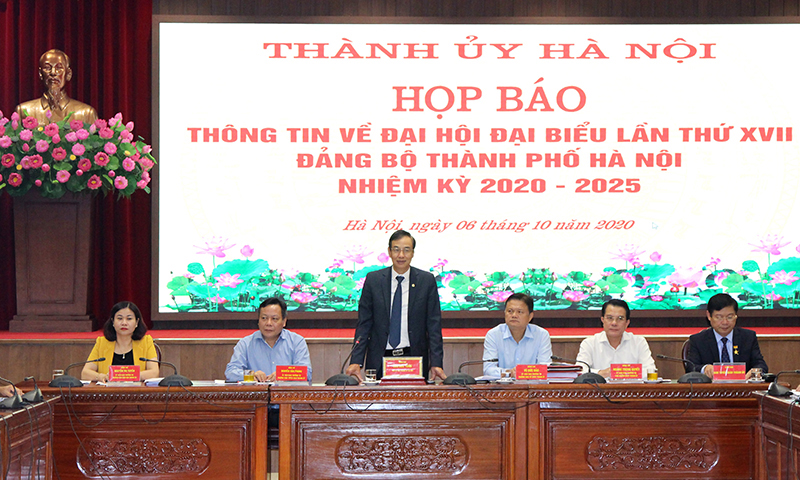Hanoi ready for Party Congress
Hanoi has drafted a list of 81 candidates for the city's next Party term 2020-2025.
Hanoi is ready for the city’s Party Congress which is scheduled to take place on October 11-13.
| A press conference ahead of the city's Party Congress. Photo: Pham Hung |
As many as 81 candidates have been nominated for the city’s Party Committee in the next five-year term 2020-2025, including 47 who are set to be re-elected and 34 to be elected for the first time, according to Pham Thanh Hoc, deputy head of the municipal Commission for Propaganda.
The final number of persons for the city’s Party Executive Committee for the next term will be 71. Among those, the city’s Party Steering Committee will have 17, and the city’s Party Inspection Commission will have 13.
The selection of candidates for the next Party term is pretty new, covering the examination of all legal documents, qualifications, assets declaration, and having children studying abroad, according to Vu Duc Bao, head of the city’s Party Organization Commission.
Economic targets
Hanoi has set a series of economic targets for five years to come, including its personal capita income (PCI) ranging between US$8,300 and US$8,500 by 2025, an increase of 49% from the current figure.
The targets were set up at a meeting prior to the city’s Party Congress.
Accordingly, Hanoi is positioned to become one of most competitive cities in the region by 2025, to be in par with localities in the continent, and to be globally connected by 2045 with PCI set at US$8,300- US$8,500, US$12,000-US$13,000, and above US$36,000, respectively.
Nguyen Van Phong, head of the city’s Commission for Propaganda, said the PCI target is set basing mainly on three categories like structure, economic growth, and population. For example, Hanoi’s population surpassed 8 million in 2019 and will reach nearly 10 million by 2025.
The city’s development for the next five years will base on three pillars namely infrastructure, regulatory framework and manpower. This will be followed by the development of information technology to build up e-administration; urban administration model-based governance with the support by the government’s specific mechanisms; and the development of digital economy and science-technology, and the inheritance of culture and people’s values.












